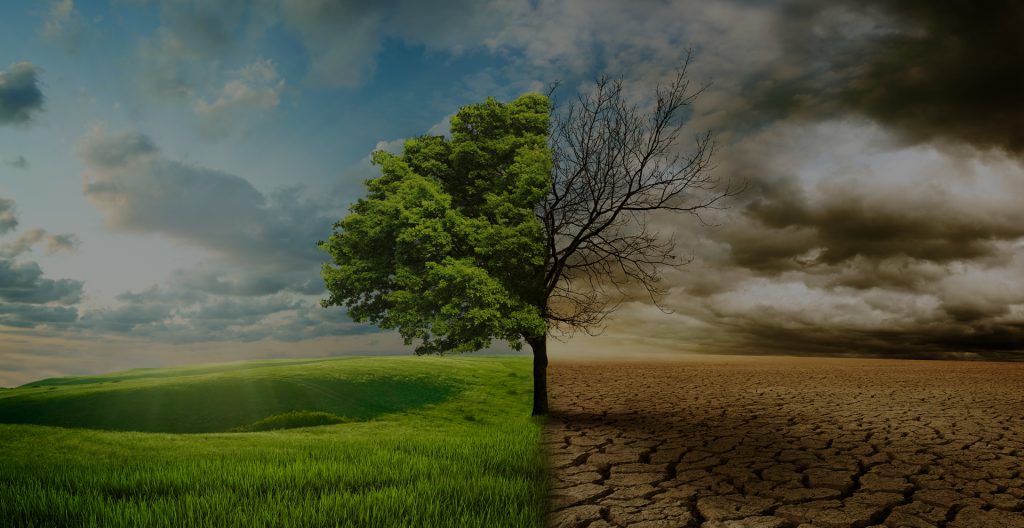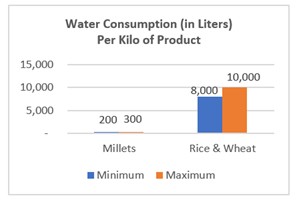Benefits to the Environment
A healthy environment is vital to all living beings in the world, as it provides air, water, food, and other needs that are essential to the existence of life. Sadly, due to human activities, our environment is deteriorating immensely, resulting in many negative consequences. However, millet crops are capable of playing an important role in mitigating the negative effects of global warming because they do not contribute to water depletion and can help to prevent soil depletion.
As global warming is accelerating, the world is experiencing more frequent surface water droughts, which is problematic as surface water is the main source of most irrigation.

Furthermore, a whopping 70% of the total water consumed globally is used for agriculture according to the United Nations World Water Development Report (2018). As a result, the global production of rice and wheat is reducing as they are very water-intensive crops. This scenario will only get worse as scientists predict the temperature will keep rising at a rate of 0.2°C per decade for the next two decades, resulting in the current surface-water depletion rate becoming higher. This will make rice and wheat non-sustainable choices to produce in the future.
Help support the environment with millets!


On the other hand, millets are drought resistant, requiring a very low amount of water; approximately 200-300 litres of water is required to produce 1 kg of millet, whereas a whopping 8,000-12,000 litres of water is required to produce 1 kg of rice and wheat, according to the Dr. Sarala Bangalore. As a matter of fact, millet production is benefitted as the temperature increases, making millets a more sustainable choice to produce both now and in the future. Additionally, millets can improve the fertility and texture of the soil, and preserve the health of the soil as their composting process is slow which, in turn, helps in maintaining soil structure and retaining water. Therefore, millets can help with soil depletion caused by the damage to the environment.
One of the reasons for the contamination of water, soil, and air is the intensive use of pesticides and fertilizers to grow crops that require them – like rice and wheat. Not only is the environment affected, this contamination also affects the health of humans, animals, and plants. Health issues such as leukemia, brain cancer, and asthma are a few examples of illnesses linked to pesticides and fertilizers. All of this can be reduced by growing millets, since these crops can be grown without much use of pesticides and fertilizers. Millets have a much smaller environmental footprint than that of rice or wheat; millets conserve water, benefit the health of the soil, and prevent pollution through their limited need for agro-chemicals, making millets the most environmentally friendly choice of grain.
